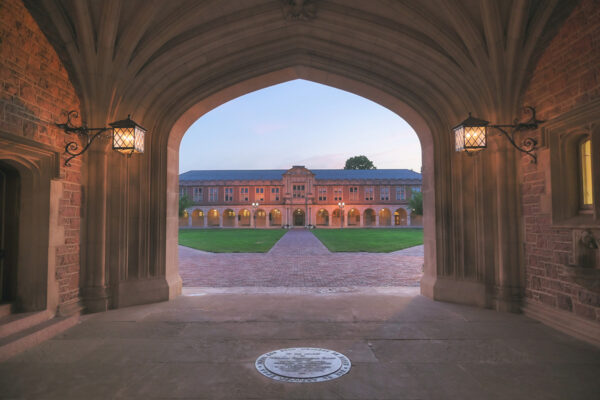Why does tuition continue to rise?
We work hard to keep tuition increases to a minimum. Some adjustment is necessary to reflect the increased cost of operating an institution like ours. The additional resources help fulfill our mission of providing an exceptional educational experience.
What is the university doing to address affordability issues?
Washington University is dedicated to meeting 100% of demonstrated financial need for all admitted students, ensuring cost does not stand in the way of a WashU education. Half of our undergraduate student body receives some form of financial assistance (scholarships, grants and/or financial aid). In the past decade, the average annual aid award for students with need has increased from about $26,000 to $53,000.
Under our “no-loan” program, the families of first-year undergraduate students with annual incomes of $75,000 or less receive full financial aid packages, without incurring any debt. The university’s newest initiative is the WashU Pledge, which Chancellor Andrew D. Martin announced at his 2019 inauguration. This financial aid program covers the full cost of education, including tuition, room, board and fees, to all undergraduate students from Missouri and southern Illinois who are Pell Grant-eligible or from families with annual incomes of $75,000 or less.
We have made substantial progress in attracting and enrolling students from low-income families, growing the number from 6% in 2013 to 16% in 2020. And as part of an ongoing effort to provide every student the true WashU experience, Martin also launched new grants to help low- income first-year students transition to college.
Will I receive a tuition refund if the university suspends in-person classes due to exceptional or unforeseen circumstances?
If the university experiences disruption due to circumstances beyond its control and determines in its sole discretion that, as a result, it must make alterations to its operations to protect the health or safety of the community, arrangements will be made as soon as practical to offer students the opportunity to complete their work remotely or through other alternative means and earn appropriate credit. Should this occur, tuition will not be refunded in whole or in part.
What is the current status of the endowment?
The endowment at Washington University is created through gifts and only the earnings from the funds can be used to support the work of our faculty, our research and the education of our students. In most cases, the use of endowment funds is restricted by guidelines as to how they can be used. The value of the endowment as of June 30, 2020, was $8.5 billion.
Given the size of the university’s endowment, why are tuition dollars important?
While the university and our students benefit greatly from the generosity of our donors and income from our endowment, tuition revenue remains one of the university’s largest unrestricted revenue streams. It is what allows us to attract the best and brightest students and faculty, maintain and add to the quality of our academic programs and facilities, and continue our rich tradition of excellence. To learn more about the endowment, how it works, where it comes from and how we use it to enhance the university’s mission, see Chancellor Martin’s three-part “Endowment 101” series on his blog.
How is the university reducing costs?
We continually seek ways to work efficiently and ensure that resources are directed toward fulfilling our mission. Our efficiency initiatives have identified cost reductions across our campuses. We have achieved significant savings in procurement of goods and services as well as in the operation of our facilities. In fact, while the university’s physical campus has doubled in size since 1990, we actually use 3% less energy now. Our commitment to efficiency is a top priority with a long-term focus. Last year, five buildings on the Danforth Campus achieved the U.S. Green Building Council’s highest green building certification, Leadership in Energy and Environmental Design (LEED) Platinum, a tangible example of our commitment to being a national leader in sustainability and careful stewards of our resources.

